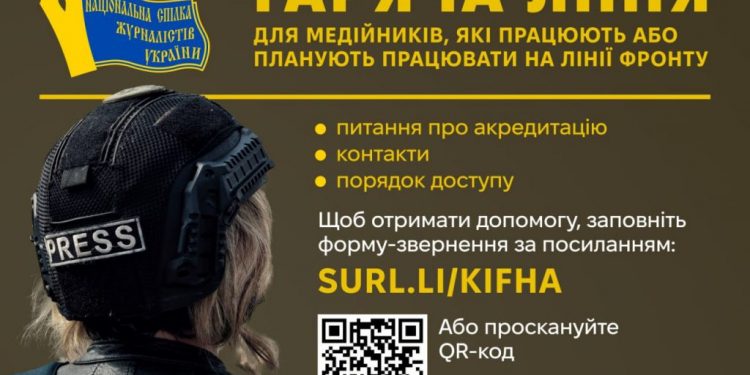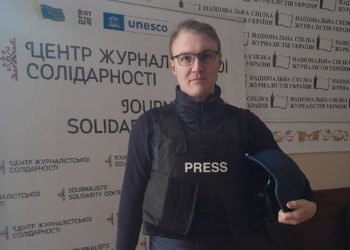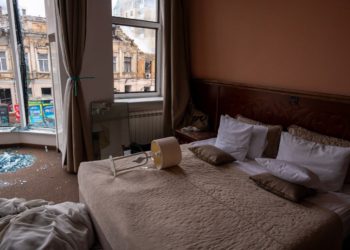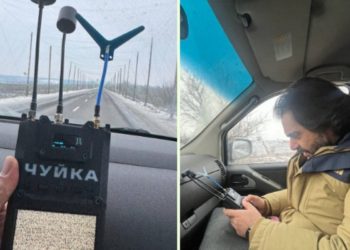The National Union of Journalists of Ukraine (NUJU) has created a hotline for media workers working or planning to work on the front line. Journalists can address it with all the issues related to obtaining the accreditation of the Armed Forces of Ukraine, as well as provide suggestions for improving work in the combat zone.
In recent months, we have received reports from journalists stating that working in the war zone has become more difficult. And this is not only related to the danger to life and health due to enemy shelling attacks. There are issues with the access of media workers to the front line in obtaining the accreditation of the Armed Forces of Ukraine.
Now, thanks to the hotline, journalists can get advice on the following issues:
- in which cases it is necessary to obtain the accreditation of the Armed Forces of Ukraine;
- what documents are required to obtain the accreditation;
- what to do if you are denied the accreditation;
- who you need to keep in touch with for a trip to the front-line areas.
The curator of the hotline is Tetiana Uralova, an expert on the safety of journalists of the network of Journalists’ Solidarity Centers of the NUJU.
How to contact the hotline?
To get help, you need to fill out the application form at the link: https://forms.gle/jqLwbnhpfkc14Dvn6
Is it for NUJU members or everyone?
The hotline is open to all media workers, including those not members of NUJU.
The NUJU perfectly understands how important it is to maintain an informational front and cover the events related to russia’s war crimes.
“We have created a Google form where journalists can discuss problems related to obtaining accreditation or working in combat zones. We will try to promptly respond to all requests and analyze problems in close cooperation with the military and law enforcement agencies. Through such consultations, we hope to improve the working conditions of media workers in the war zone,” NUJU head Sergiy Tomilenko emphasized.
ABOUT UNESCO
UNESCO is the United Nations Educational, Scientific, and Cultural Organization. It contributes to peace and security by promoting international cooperation in education, sciences, culture, communication, and information. UNESCO promotes knowledge sharing and the free flow of ideas to accelerate mutual understanding. It is the coordinator of the UN Action Plan on the Safety of Journalists and the Issue of Impunity, which aims to create a free and safe environment for journalists and media workers, thus strengthening peace, democracy, and sustainable development worldwide. UNESCO is working closely with its partner organizations in Ukraine to provide support to journalists on the ground.
The designations employed and the presentation of material throughout this digest do not imply the expression of any opinion whatsoever on the part of UNESCO concerning the legal status of any country, territory, city, or area or its authorities or concerning the delimitation of its frontiers or boundaries.
The authors are responsible for the choice and the presentation of the facts contained in this digest and for the opinions expressed therein, which are not necessarily those of UNESCO and do not commit to the organization.
NUJU Information Service

 THE NATIONAL UNION OF
JOURNALISTS OF UKRAINE
THE NATIONAL UNION OF
JOURNALISTS OF UKRAINE
















Discussion about this post